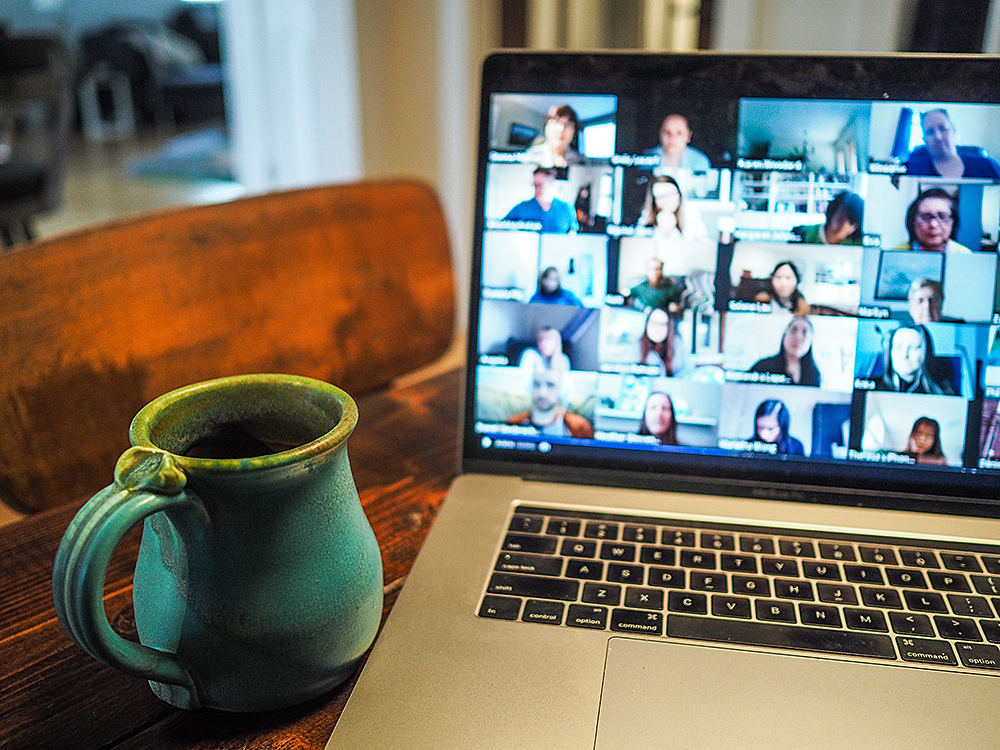Have you attended one of the many online events recently and the lighting was bad or you could barely hear the speaker? Knowing how to have a successful online event is crucial to getting readers to engage with your book. We all know that our attention spans are short, and when it comes to online presentations or keynotes, our attention is even shorter—especially with Zoom fatigue. So here is a publicity manager’s quick guide to successful online author events that attract and engage readers.
Strategize
Come up with a plan of what the main theme or goal of the event will be. Do you want to interact with attendees? Do you want to show readers what the book is about? Or do you want to introduce your author to the audience? It may help to write down bullet points for ideas on what you will be speaking about. This way, you have a guide to follow and you won’t get sidetracked. However, make sure it doesn’t feel too scripted, otherwise, it will feel inauthentic. Authenticity is an important aspect of hosting online events.
Engagement and Professionalism
Don’t just do one thing in your event. For example, don’t just have an excerpt reading. Excerpt readings are overdone and will lose engagement quickly if the author or speaker isn’t a captivating reader. Some other types of events could include a look behind the scenes, a day in the life of an author, writing tips, or an author or book Q&A. Be creative when coming up with ideas. Outside-the-box events are always more fun to attend. Finally, make sure all speakers for your event are kind, respectful, and professional. This isn’t a FaceTime date with friends. It’s a professional event, but also make sure to have fun with it.
Angles
If the event is a typical interview, reading, or Q&A, the phone or laptop used needs to be at head height so the speaker is looking directly into the camera with their shoulders and neck visible. There is usually no need to show their full body. Some exceptions may be made to create a homey or comfy feel when doing an at-home reading.
The background of the shot should be aesthetically pleasing, be it a bookshelf, plants, or just a plain wall, as long as it looks professional and does not distract from the main speaker. The background should always add to the event, not take away from it.
Lighting
Lighting is one of the biggest mess-ups for online events. Lighting can be unpredictable, especially when using natural sunlight. The best way to get predictable lighting is with professional lighting equipment. However, it is unrealistic to think that everyone can afford that. If you don’t have access to a ring light or something similar, your best friend will be bright, artificial light or indirect sunlight. The artificial light or indirect sunlight should be in front of you, and behind the camera if possible. This way there is no blinding light, making it hard to see the speaker. Artificial lighting is usually easier to deal with than indirect sunlight because it is predictable and easier to manage.
Sound
You don’t need a professional $1,000 microphone to get good sound quality. Event speakers can wear headphones which will help them hear better and will create better sound quality. Many headphones have microphones in the volume controller. If headphones are not available, make sure the environment the speaker is in is as quiet as possible and that they sit close to the computer or phone.
Better Safe Than Sorry
Always prepare ahead of time for tech troubles. Set up the equipment beforehand and test it a few times to make sure you have it down. Start the event a little earlier than the scheduled time to set up the equipment and make sure there are no sound or video issues. If there is an issue, don’t freak out. Remain calm and try to fix it. More likely than not, you just need to press a specific button to fix the problem.
The safety of speakers, hosts, and attendees is the top priority. Requiring registration and passwords to Zoom events will allow attendees to feel more comfortable. This may create a smaller turnout for events, but this means those who attend are actually there because they want to be. And nobody wants to be Zoom bombed.
I hope this short and sweet guide is helpful to all the hosts out there. See you all soon on the internet. Happy Zooming!

